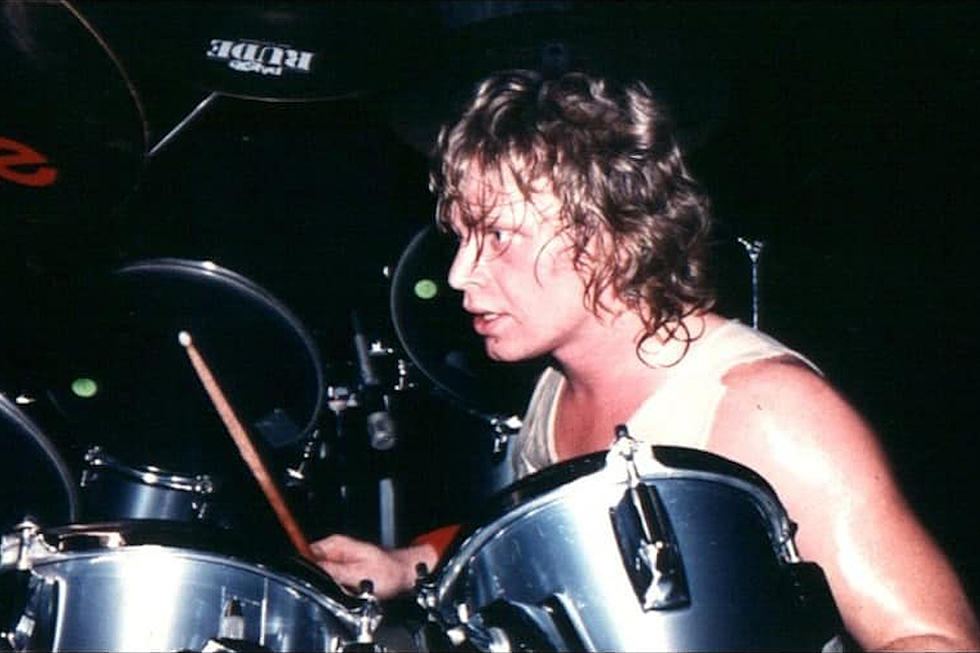
When Megadeth Treaded Water With ‘Youthanasia’
The title may have been typically pessimistic, but Youthanasia actually coincided with perhaps the most prosperous and stable period in Megadeth’s long career.
The brainchild of vocalist and lead guitarist Dave Mustaine, Megadeth had seen its fortunes rise and fall in frustrating lockstep with its leader’s incredible talents and well publicized personal demons, most of them drug-related. Among other problems, this uncertainty resulted in a revolving-door membership policy that continually challenged the band’s evolution, until lead guitarist Marty Friedman and drummer Nick Menza joined Mustaine and bass-playing partner Dave Ellefson before 1990’s watershed Rust in Peace LP.
And when the same four musicians returned to the studio to collaborate on a second album in a row, the ensuing Countdown to Extinction marked a new commercial and artistic benchmark for Megadeth, so expectations were exorbitantly high two years later for their third joint effort, Youthanasia, to repeat that success. Maybe a little too high, because the album that Megadeth emerged with after eight months in the studio with producer Max Norman (who’d done such a fine job on Countdown) followed almost the same script as the band's latest triumph, despite taking twice as long to record.
By and large, Youthanasia arrived on Nov. 1, 1994 with a new emphasis on further simplifying what could at times be a quite complex Megadeth sound. It also moved the band ever further away from their blistering-fast thrash roots, towards a more accessible, mid-paced heavy metal sound.
That being said, "blistering" was still a perfectly suitable adjective to describe this project's first four songs, namely the relentless "Reckoning Day," jagged-edged first single "Train of Consequences," anthemic "Addicted to Chaos," and the simply astonishing "A Tout Le Monde," which signified a songwriting breakthrough for Mustaine by the time its divine guitar harmonies faded away. And though this opening quartet proved an almost impossible act to follow, Megadeth’s overall maturity (to say nothing of their road-tested synchronicity as a band) was put on further display by subsequent highlights like the surpassingly lucid "I Thought I Knew It All," and a gutsy indictment of child abuse named "Family Tree."
Ultimately, Youthanasia couldn’t quite match the through-and-through consistency of Countdown to Extinction, and probably played it a little too safe in following in its footsteps. But Megadeth's sixth album still nearly matched its predecessor’s lofty achievements, topping out at No. 4 instead of No. 2 on the Billboard charts, and one million copies sold, instead of two.
Not until 1997’s decidedly risky mainstream metal experiment Cryptic Writings did Megadeth’s winning streak seem at all in danger of subsiding, nor their hard-won band chemistry finally start to disintegrate. Menza and Friedman, then even Ellefson subsequently abandoned Mustaine to his own devices.
Still, Youthanasia epitomized the best of times in Megadeth history – at least around the time of its release.
See Megadeth Among the Top 50 Heavy Metal Albums
More From Ultimate Classic Rock









